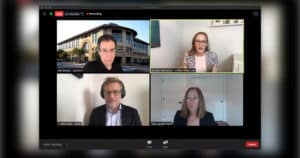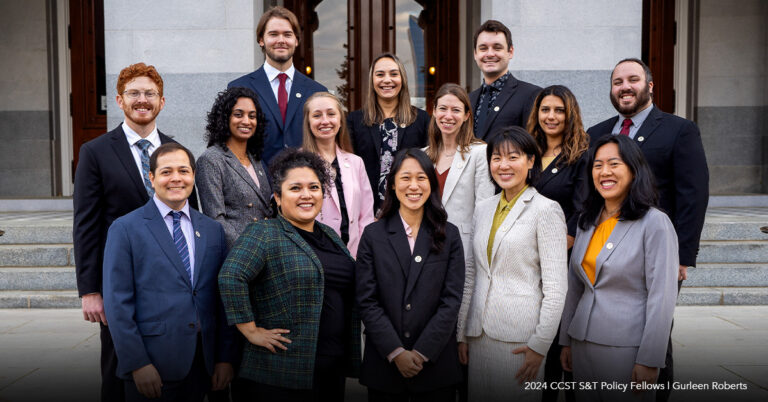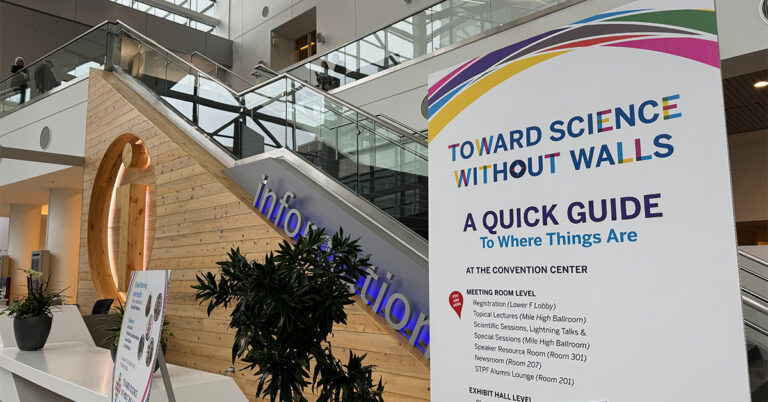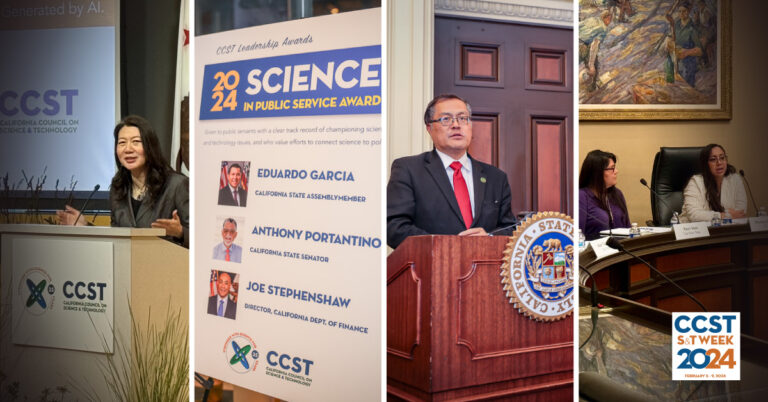Update: Applications for the CCST Science & Technology Policy Fellowship Have Closed
CCST Annual Report 2020: Toward a Resilient California
January 28, 2021 | CCST Newsroom, Federal Research in California
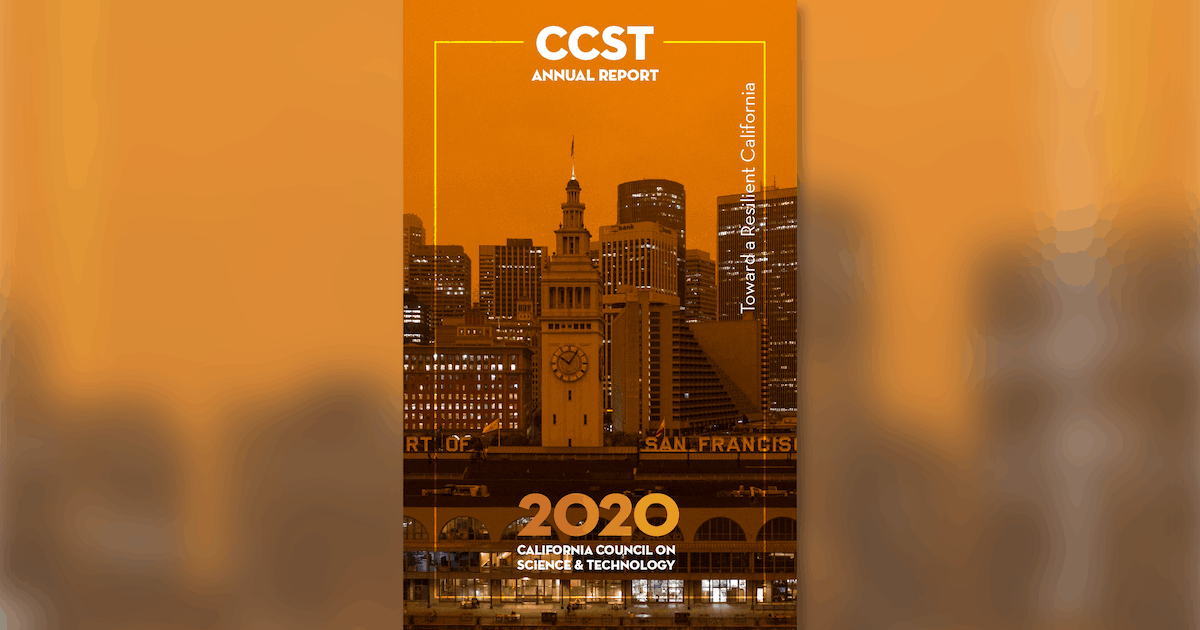
Download our 2020 Annual Report (PDF).
Message from the CCST Board Chair

As I look back on a year marked by a global pandemic, powerful social justice movements, turbulent elections, megafires, and a continuing climate crisis, I’m struck by how much CCST adapted – and delivered – in this environment.
With the support of our institutional and philanthropic partners, we teamed with California’s leading science and technology experts to deliver actionable advice to California policymakers. As one example, our study of the costs of wildfires, undertaken in partnership with the Gordon and Betty Moore Foundation, highlighted key gaps in how our society accounts for the costs and impacts of wildfires – for example, the significant and increasingly deadly impacts of wildfire smoke inhalation. The study’s findings have the potential to help change the conversation about how the State and federal government can use their resources most effectively to protect Californians.
We know science and technology must be essential components of our recovery from the pandemic and our preparation for future complex disasters.
Wildfires are one component of California’s increasingly complex disaster landscape. We launched a Disaster Resilience Initiative, “Toward a Resilient California,” to strengthen our support to the State’s efforts to manage these risks. This will be a five-year public-private partnership that enhances the delivery of actionable science advice from our network of experts to State policymakers.
Last year’s calls for racial justice after the killings of George Floyd and Breonna Taylor, and the disparate impacts of California’s historic wildfires and the COVID-19 pandemic, brought the consequences of systemic racism into clearer focus. Our Board, and the staff and Fellows of CCST, are passionate about making progress and are working to institutionalize diversity, equity, and inclusion throughout CCST’s work. These efforts have informed our new strategic plan. We have taken several initial actions, though we know there is much work yet to be done.
We know science and technology must be essential components of our recovery from the pandemic and our preparation for future complex disasters. CCST looks forward to working with our partners in 2021 and beyond to help build a more sustainable and resilient future for all Californians.
— PETER COWHEY, PhD
Dean, UC San Diego School of Global Policy and Strategy
Disaster Response & Resilience
Toward a Resilient California

“Wildfire is a challenge that is not going away for California.. . . Our report provides an improved framework for the State and recommendations to move toward sound fire management policy for California.”
Michael Wara, PhD, JD
Chair, Steering Committee
Director, Climate and Energy Policy Program
Stanford Woods Institute for the Environment
The Costs of Wildfire in California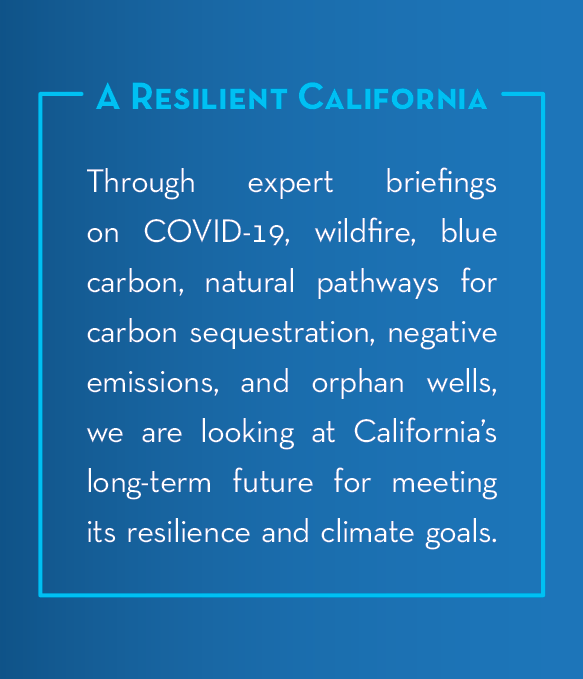
Led by authors and a Steering Committee with multidisciplinary expertise, this CCST study suggests opportunities for policymakers to improve the effectiveness of wildfire management in California in several key ways: enabling regional approaches, increasing investments in mitigation and resilience strategies, and accounting for the cumulative public health impacts of exposure to multiple fire events—including the interacting effects of wildfire smoke and COVID-19. Part of CCST’s ongoing efforts toward a resilient California.
![]()
COVID-19 Exposure Notification
A CCST Expert Briefing discussion moderated by:
Assemblymember Jacqui Irwin.
Dan Boneh, Stanford, Computer Science, Elect. Engineering
Brandie Nonnecke, Founding Director, CITRIS Policy Lab
Mike Reid, UC San Francisco, School of Medicine
Natural Carbon Pathways
A CCST Expert Briefing discussion moderated by:
Rob Jackson, Stanford, Earth System Science.
Asmeret Berhe, UC Merced, Life & Enviro. Sciences
Patty Oikawa, CSU East Bay, Earth & Enviro. Sciences
Matthew Potts, UC Berkeley, Env. Sci. Policy & Mgmt.
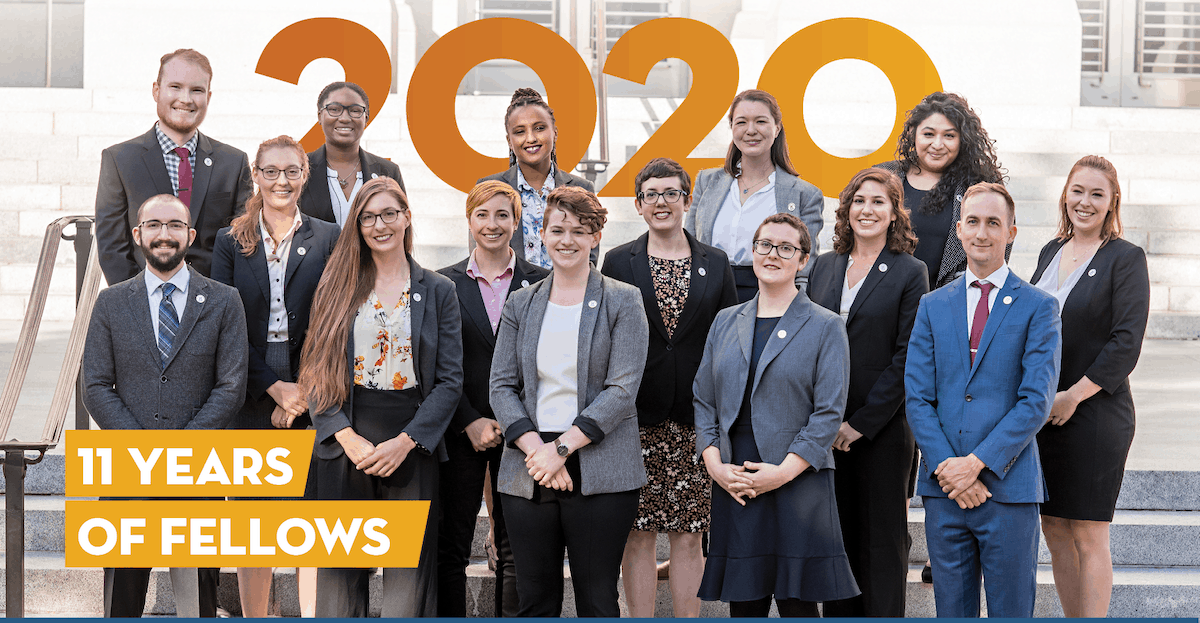
CCST Science & Technology Policy Fellows
Providing scientists with a year of government service and leadership training for a science policy career.
The 2020 Fellows faced historic and challenging circumstances unlike any class before it—and they rose to the occasion. When the Capitol community shifted to remote work, the Fellows quickly adapted to operating in a virtual environment and continued to make vital contributions to the work of the State, including COVID-19 response and recovery efforts and served as influential voices on antiracism. In 2020, with support from the State of California and the Gordon and Betty Moore Foundation, we increased the number of Fellows from 10 to 15, and expanded our reach to place Fellows in the Executive Branch for the first time.
The 2020 class marked our 11th year of placing PhDs directly into legislative offices and committees. Altogether, CCST Science Fellows have worked on over 1,000 bills, briefings, hearings, and bill analyses. There are now 113 alumni of the program, many of whom serve in positions in legislative offices and agencies. With the arrival of the 2021 class in November, 128 CCST Science Fellows have now been trained to work directly with decision makers as trusted staff.
View the 2020 Class Profiles
Board of Directors
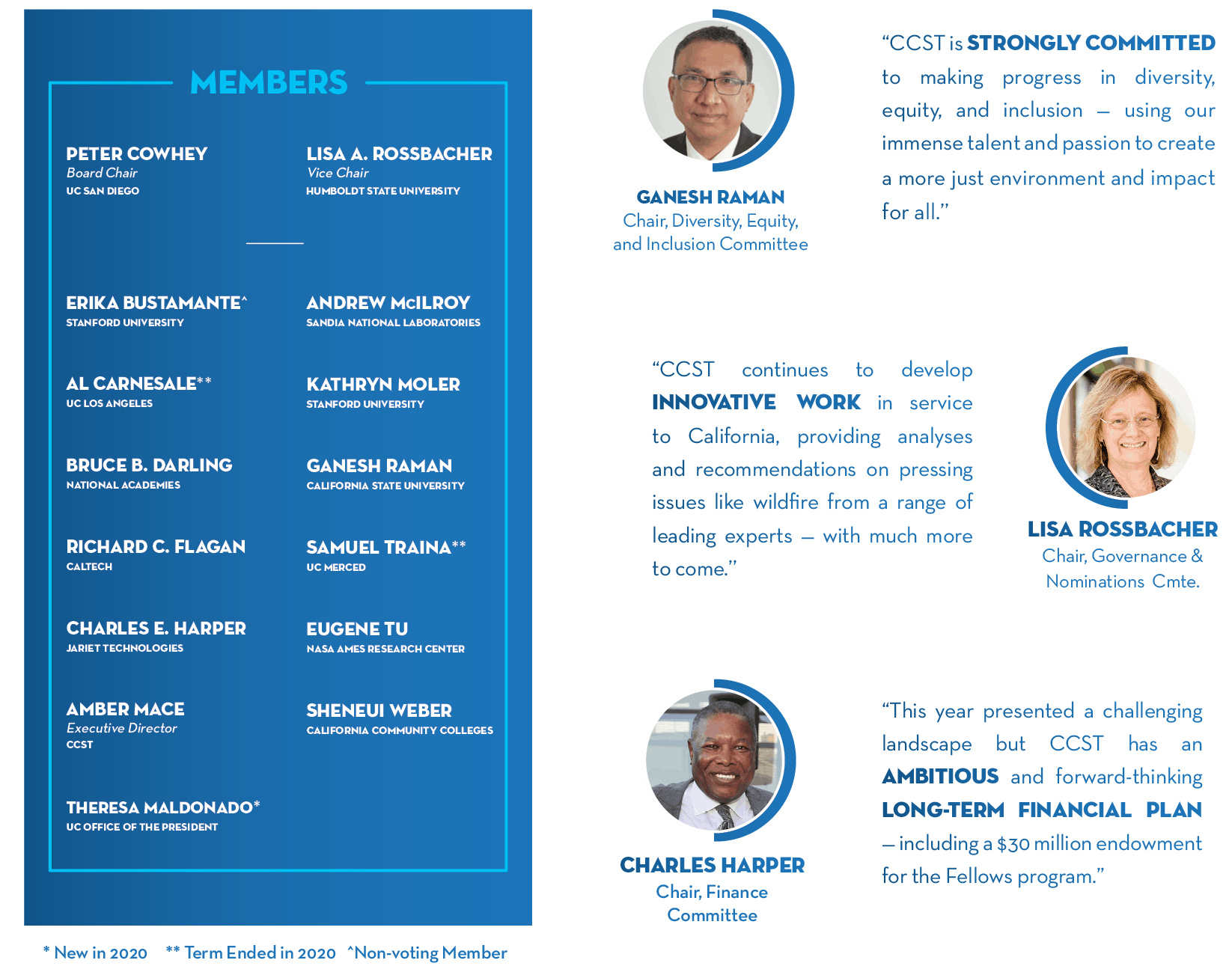
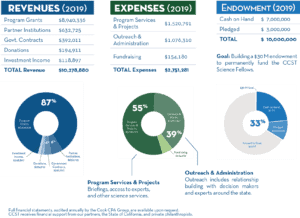
More Details:
For more details on our activities throughout 2020, including the full roster of Fellows, a photo gallery from Science & Technology Week, and more, download our Annual Report (PDF).
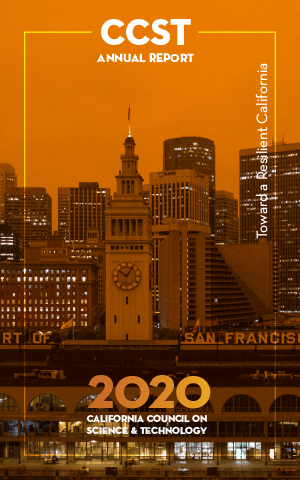
About the California Council on Science and Technology
The California Council on Science and Technology is a nonpartisan, nonprofit organization established via the California State Legislature — making California’s policies stronger with science since 1988. We engage leading experts in science and technology to advise State decision makers — ensuring that California policy is strengthened and informed by scientific knowledge, research, and innovation.

